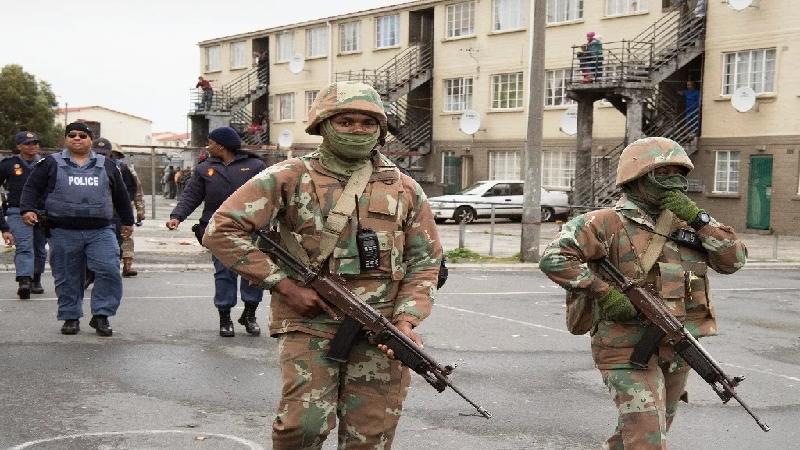Now that President Cyril Ramaphosa has extended the term of the SANDF’s deployment in gang-infested areas in the Western Cape, many are breathing sighs of relief. However, analysts and several community activists are saying that the army is nothing more than a bandage covering the real issues facing communities, struggling to prevent conditions from worsening.
“All the army can do is buy time and provide some extra bodies to help police, protecting investigation teams when they go in,” said military and defence analyst, Helmoed Heitman.
“Instead of having to send six detectives to do something, you can send one or two with an army escort…spreading your detective teams a bit more widely to gather intelligence and do investigations.”
“However, the military can’t solve the problem – it’s not a military problem. It’s not even a police problem, really. It’s a socioeconomic problem. Police can also only buy time for other things to be done.”
Heitman explained that the fight against crime and gangsterism in South Africa is difficult due to the condition of the country’s economy. He indicated that crime and gangsterism are exacerbated by poor socioeconomic conditions.
When gangsterism is coupled with narcotics trades, crime and drug trading becomes “exceedingly difficult” to root out due to the size of narcotics trades rivalling the strength of some small nation’s economies.
“When you’ve got a sinking economy it’s difficult to do something about problems like massive unemployment – which then lead further into things like gangsterism.”
“Once narcotics trades are established, it becomes exceedingly difficult to root them out because they make a lot of money. If you look at Latin America, some of the narcotics can share at one stage an annual turnover higher than the GDP of some small countries – it’s difficult for a police service to deal with them. The only solution is really long term – we have to get the economy going.”
Furthermore, as far as the police are concerned, there needs to be a public perception of efficiency and effectiveness if the fight against crime is going to be productive, according to Heitman.
“We have to make sure policing is effective and efficient and is seen to be effective and efficient. You also have to get communities on board – which is difficult because community leaders who are negative toward gangs already get assassinated, which is what happened in other countries. You then additionally have to get NGO’s involved,” said Heitman regarding the requirements needed to stabilise communities and prevent crime from worsening.
He also suggested that the public might be expecting too much from the military in demanding that they play a more active role.
“The army can’t be very active. They can’t go around shooting everybody on sight. There needs to be a proper plan in place and a proper appreciation of the situation.”
Finally, Heitman indicated that often gangs engage in acts perceived by communities as the spreading and provision of welfare. He explained that the state needs to find cases where gangs are doing “welfare jobs” and step in and take over those roles, which are rightfully theirs [the state’s] in the first place.
The most interesting part of Heitman’s list of possible strategies to weaken gangs was the possibility of legalising drugs, thereby crippling the drug-trade industry and dramatically reducing the income streams of gangs.
VOC






 WhatsApp us
WhatsApp us 

